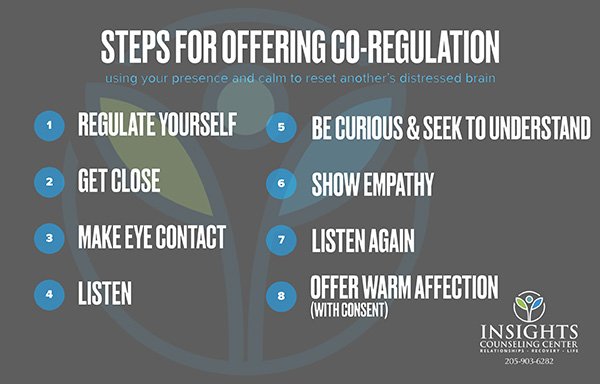The Power of Co-Regulation: Supporting Children and Teens with Healthy Parental Attachment
In the world of parenting, we often hear about the importance of nurturing and providing for our children. But have you ever thought about the impact of our own emotional well-being on our children's development? As parents, we possess the incredible ability to co-regulate with our children and teens, helping them navigate through life's challenges and form secure attachments.
What is Co-Regulation?
Co-regulation is the process of attuning to and regulating the emotional state of another person. In this case, it refers to the vital role that parents with fully developed brains play in supporting the emotional well-being of their children and teens. It involves an ongoing, reciprocal interaction where parents provide a safe and secure emotional environment, allowing their children to feel understood, valued, and supported.
Why is it important?
During childhood and adolescence, our brains are continuously developing and acquiring new skills. This is a critical period where children and teens learn how to regulate their emotions, handle stress, and form healthy relationships. When parents actively engage in co-regulation, they provide a solid foundation for their children's emotional growth.
By co-regulating with their children, parents with fully developed brains can model healthy emotional responses, teach effective coping mechanisms, and foster resilience. This can have long-lasting effects, helping children and teens develop the skills needed to thrive as adults.
Benefits of Co-Regulation in Parent-Child Relationships
Emotional Intelligence: Co-regulation enhances a child's emotional intelligence, allowing them to identify, understand, and manage their emotions effectively. This skill empowers them to navigate relationships, solve problems, and make sound decisions.
Secure Attachment: Co-regulation creates a sense of safety and security that is vital in forming secure attachments. When children feel emotionally supported, they develop trust and confidence in their caregivers. This lays the foundation for healthy relationships throughout their lives.
Stress Reduction: Engaging in co-regulation can help children and teens manage stress and anxiety. By providing a calm and consistent presence during times of distress, parents can help their children regulate their emotions and restore a sense of balance.
Self-Regulation: Through co-regulation, children and teens develop self-regulation skills. Parents' guidance and understanding serve as a roadmap for managing emotions, setting boundaries, and making healthy choices.
How to Foster Co-Regulation
Be Present: Take time to be fully present with your child or teen. Show genuine interest by actively listening, responding empathetically, and providing support when needed.
Validate Emotions: Acknowledge and validate your child's feelings, even if they seem irrational or inconsequential. This helps them feel heard, understood, and accepted.
Model Healthy Coping: Demonstrate healthy coping strategies by managing your own emotions in a constructive manner. Let your child see how you handle stress, frustration, or sadness in a positive way.
Create a Safe Space: Cultivate an environment where open communication, trust, and respect thrive. Encourage your child or teen to express their emotions and thoughts without fear of judgment or punishment.
Practice Self-Care: As a parent, remember to prioritize your own emotional well-being. By taking care of yourself, you can be fully present and emotionally available to support your child or teen.
At Insights Counseling Center, we understand the incredible impact parents have on their children's emotional development. We are here to support families in cultivating healthy co-regulation practices, allowing children and teens to thrive and grow. If you're seeking guidance on how to foster co-regulation or need support in navigating your family's emotional well-being, reach out to our compassionate team of therapists. Together, we can help you restore your relationships and recover your life.

